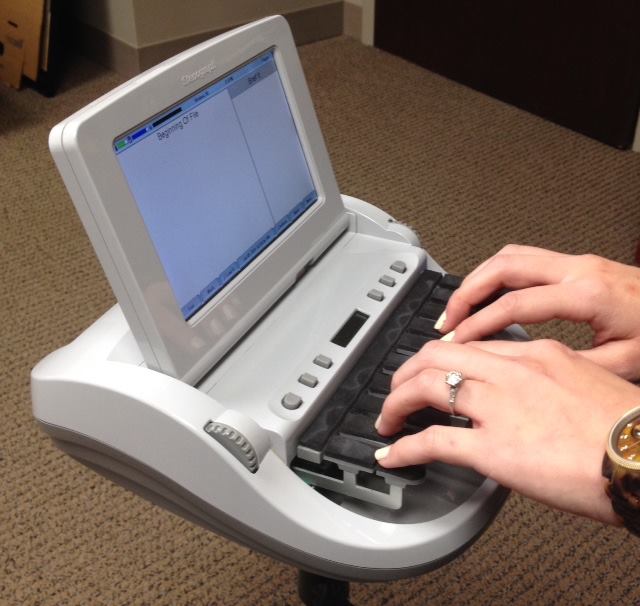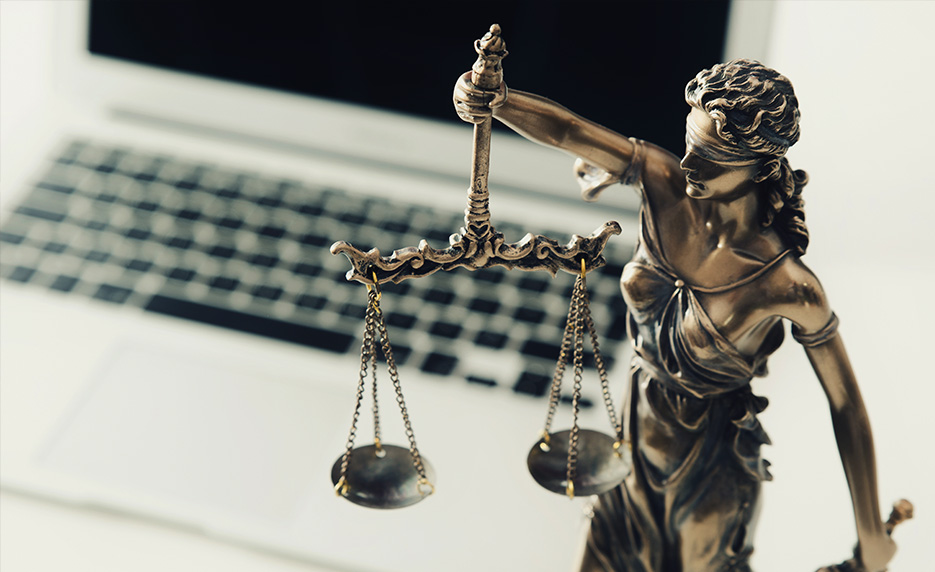Why Steno Skills Still Matter in durham reporting
Why Steno Skills Still Matter in durham reporting
Blog Article
Comprehending Exactly How Court Coverage Works: A Secret Part in the Justice System
Court coverage plays an essential function in the legal system. It guarantees that all court procedures are recorded properly. Court reporters make use of specialized tools and strategies to develop verbatim transcripts. These transcripts offer different purposes, consisting of appeals and legal clearness. Recognizing the details of court reporting exposes its importance in preserving the stability of justice. What difficulties do stenotype reporter encounter in this progressing field?
The Role of Court Reporters in the Legal System
Court reporters play an important duty in the lawful system, guaranteeing precise and trustworthy paperwork of court room procedures. They are in charge of capturing every spoken word throughout tests, hearings, and depositions, producing a verbatim transcript that works as a permanent record. This documents is essential for charms, supplying a foundation for greater courts to assess cases.In addition to transcribing talked language, court press reporters likewise promote communication between lawyers, judges, and various other parties associated with legal matters. Their work promotes transparency and accountability within the judicial process.Utilizing specialized equipment and software application, court reporters need to stay focused and alert, frequently functioning under stress to meet tight target dates. Their records are not just vital for lawful referral however also for preserving the integrity of judicial process. Inevitably, court press reporters add greatly to the reasonable management of justice, making sure that all voices are heard and videotaped properly.
Crucial Abilities Required for Court Coverage
Court reporting demands an one-of-a-kind set of abilities that are essential for accuracy and effectiveness. Proficiency of stenography techniques, solid listening and comprehension abilities, and meticulous interest to information are important for success in this field. These abilities make it possible for court press reporters to generate trusted transcripts that work as essential records in the lawful system.
Mastery of Stenography Techniques
While mastering stenography techniques is necessary for aiming court press reporters, it requires commitment and technique to establish the essential skills. Stenography entails making use of a specialized key-board to capture talked words in actual time, making precision and rate critical. Stenotype reporter should find out to make use of shorthand signs and establish muscular tissue memory to guarantee reliable transcription. Regular experiment dictation workouts helps in boosting keying rate, while familiarity with lawful terms improves understanding throughout proceedings. Comprehending the phonetic structure of the English language is considerable, as it assists in properly capturing dialogue. Eventually, effectiveness in stenography not only facilitates effective interaction within the court room yet additionally supports the integrity of the legal process.
Strong Paying Attention and Comprehension
Reliable court reporting joints not just on stenography skills however likewise on strong listening and understanding capabilities. Stenotype reporter must proactively pay attention to testaments, legal disagreements, and dialogues, ensuring they grasp the nuances of spoken language. This skill assists in precise transcription of complex lawful procedures, where every word matters. Comprehension prolongs past surface-level understanding; press reporters have to interpret context, tone, and intent to catch the significance of conversations accurately. Additionally, they commonly encounter specialized terminology and jargon, calling for fast adaptation and retention of details. The capability to synthesize what is listened to while concurrently recording is important, as it assures the honesty of the official record. Solid listening and understanding are important in providing precise and reliable court records.
Attention to Information
Focus to information is a basic ability for stenotype reporter, complementing their listening and understanding abilities. This precision ensures that every spoken word, inflection, and nuance is captured accurately in transcripts. Court press reporters should thoroughly keep in mind legal terminology, names, and complex dialogue to give reliable records for legal procedures. A minor oversight can bring about considerable effects, possibly influencing case outcomes (durham reporting). Furthermore, stenotype reporter usually function under pressure, requiring them to maintain emphasis and precision in fast-paced settings. Their focus to information not just enhances the integrity of the judicial procedure however also fosters trust fund among lawful experts. Eventually, this ability is essential for creating records that act as conclusive records in court cases, guaranteeing justice is upheld
The Innovation Behind Court Coverage
As court reporting evolves, the modern technology used by experts in the area has actually ended up being progressively advanced. Traditional shorthand writing has mostly been supplemented by innovative electronic devices that enhance rate and precision. Stenographic equipments, equipped with specialized software program, allow stenotype reporter to capture talked words in real-time, converting them into message instantaneously. This innovation not just expedites the transcription process however additionally minimizes the capacity for errors.Moreover, voice acknowledgment software is emerging as a valuable asset, enabling computerized transcription from audio recordings. This development provides an option for developing records when a human reporter may not be offered. Additionally, cloud-based storage remedies promote easy access and sharing of records among attorneys, making certain that crucial information is easily offered. As these modern technologies remain to development, they play an essential role in preserving the honesty and performance of the justice system, inevitably sustaining the vital job of stenotype reporter.
The Process of Transcribing Legal Proceedings
The procedure of transcribing legal process calls for a mix of skill and modern technology to ascertain precision and effectiveness. Stenotype reporter make use of specific devices, such as stenographic machines, to record spoken words in real-time. This technology enables the reporter to transform discussion into message, assuring that every declaration made during a trial or hearing is documented.Once the session concludes, the initial transcripts undertake modifying for clearness and comprehensibility. Reporters may additionally integrate audio recordings to cross-reference and confirm the precision of their transcriptions. This precise process warranties that the last record reflects an accurate account of the proceedings.Additionally, court press reporters should maintain a thorough understanding of legal terminology and courtroom procedures to effectively translate spoken language right into written form. Their expertise not just aids in producing reputable records however likewise sustains the legal system by Extra resources giving necessary documentation for appeals and future recommendations.
Ensuring Precision and Honesty in Court Records
Ensuring precision and honesty in court documents is vital for the judicial procedure. Court press reporters play a crucial duty in recording procedures properly, while innovations in technology boost their capability to maintain high standards. Furthermore, maintaining discretion requirements is necessary to shield sensitive info within lawful records.
Function of Court Reporters
Court reporters play a vital role in the judicial system by catching precise and verbatim accounts of legal process. Their key responsibility is to guarantee that every talked word is recorded specifically, supplying a reputable record that can be referenced in charms and future cases. By using specialized tools and techniques, court press reporters maintain the stability of the court record, assisting in openness and accountability in the legal process. They likewise help judges, lawyers, and various other legal experts by giving records that are essential for comprehending case information and lawful arguments - durham reporting. The accuracy of a stenotype reporter's job straight influences the outcomes of situations, underscoring their significant payment read to the quest of justice and the regulation of regulation
Modern technology in Reporting
Advancements in modern technology have considerably changed the area of court coverage, improving the accuracy and integrity of court records. Modern stenotype reporter utilize innovative tools such as stenographic devices and digital audio recording devices, ensuring exact transcription of spoken words. These devices enable real-time transcription, which gives instant accessibility to court proceedings and helps with prompt decision-making. Furthermore, software application programs geared up with sophisticated formulas help in determining and dealing with errors, additionally bolstering the reliability of recorded information. The assimilation of cloud storage remedies ensures that records are safely archived and easily retrievable, decreasing the danger of loss or damages. In general, these technological advancements play a vital duty in keeping the high quality and reliability of court paperwork in the justice system.
Preserving Discretion Standards
A critical aspect of court reporting is maintaining confidentiality requirements, which are important for ensuring the accuracy and honesty of court records. Court reporters are turned over with delicate information, requiring stringent adherence to ethical guidelines and legal provisions. This discretion safeguards not only the privacy of the included parties however likewise the trustworthiness of the judicial process. Reporters utilize safe and secure methods for managing and saving transcripts, commonly employing encryption and limited access procedures. In addition, they should navigate the intricacies of various lawful structures that govern confidentiality in various territories. By maintaining these standards, court reporters add considerably to the reliability of court records, promoting count on the justice system and ensuring that lawful procedures can be carried out with the utmost professionalism and trust and regard for privacy.
Different Kinds Of Court Reporting Solutions
While the lawful landscape continues to progress, the variety of court coverage services readily available has actually expanded significantly to satisfy varied requirements. Standard court reporting stays vital for catching verbatim transcripts throughout tests and depositions. Added services have actually arised, consisting of real-time coverage, which supplies immediate accessibility to transcriptions as they are created, useful for attorneys and his response judges.Video court reporting has actually additionally gotten popularity, permitting for visual documents of witness statements, boosting the document with non-verbal cues. Remote court reporting has ended up being increasingly appropriate, offering online deposition solutions to suit geographical constraints.Lastly, some court reporters specialize in captioning services for the hearing damaged, ensuring ease of access in lawful process. This diverse series of court reporting services makes it possible for attorneys to choose one of the most suitable option for their certain situations, ultimately boosting the performance and performance of the justice system.

The Future of Court Reporting in a Digital Age

As modern technology remains to improve the legal field, the future of court coverage is positioned for considerable adjustment. The assimilation of sophisticated tools such as expert system and real-time transcription software is becoming increasingly prevalent. These advancements assure to simplify the reporting procedure, enabling faster and a lot more exact documents of legal proceedings.Moreover, the shift in the direction of remote hearings demanded by global events has actually sped up the fostering of electronic systems, enabling court reporters to function effectively from different areas. This change also questions regarding the conservation of typical abilities, as the emphasis on technology might eclipse the nuanced art of shorthand reporting.Nonetheless, human court press reporters continue to be very useful, supplying context, feeling, and proficiency that equipments can not duplicate. As the lawful landscape progresses, a crossbreed design that integrates modern technology with human understanding may specify the future of court reporting, ensuring its importance in a digital age.
Regularly Asked Inquiries

What Credentials Do Court Reporters Required to Operate In the Field?
Stenotype reporter commonly call for a senior high school diploma, specialized training in court coverage, and certification from relevant expert companies. Proficiency in shorthand or voice writing and solid language skills are vital for success in this field.
The length of time Does It Require To End Up Being a Qualified Court Reporter?
Becoming a qualified stenotype reporter normally needs two to 4 years of education and learning, including specialized training and technique. The duration differs based upon individual progression, the selected program, and the certification process, influencing total conclusion time.
Can Court Reporters Work From Another Location or In-Person?
Court press reporters can function both remotely and in-person, relying on the demands of a situation. Advancements in modern technology have made it possible for lots of to give services via video conferencing, permitting adaptability in their job settings.
What Is the Average Salary for a Stenotype Reporter?
The ordinary wage for a stenotype reporter differs by place and experience, normally ranging from $50,000 to $80,000 every year. Variables such as specialization and need can greatly affect individual profits within the career.
How Do Court Reporters Deal With Legal Jargon During Process?

Report this page